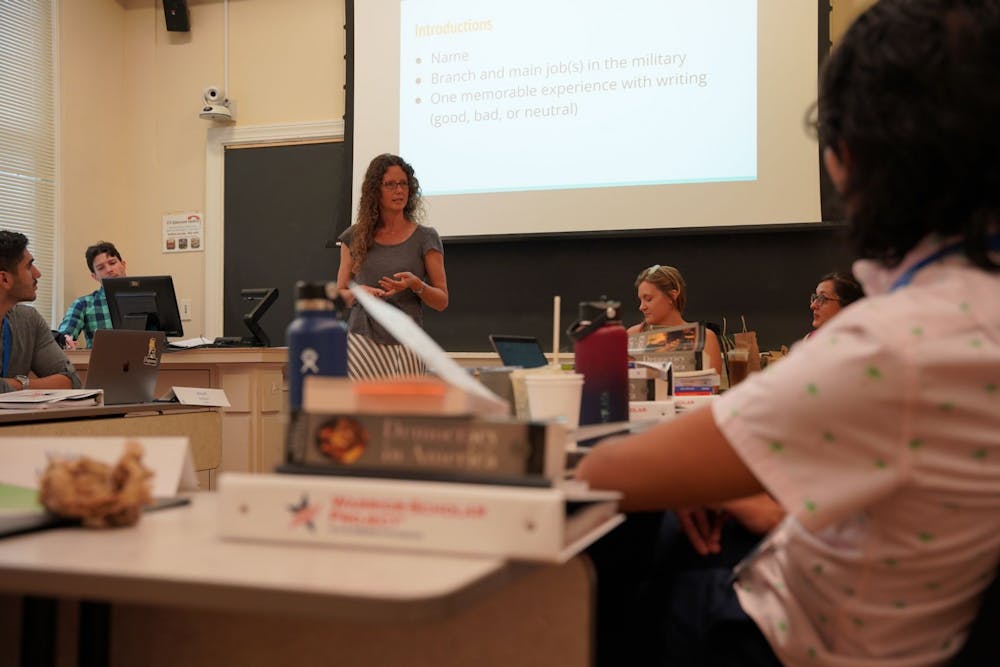Pavel said while the program is intense and requires around 75-80 hours of work per week for students, that is a part of why it works.
“The idea is that when you go through boot camp, military boot camp, no matter what your job is, no matter what branch of service, there's the ethos of a warrior, right?" Pavel said. "You see yourself as part of this community, you see yourselves as part of the force. And the same thing is true here."
Every year, the project sends out a survey to its near-2,000 alumni to track their degree completion progress, Pavel explained.
Pavel also said after the survey was completed, 92 percent of respondents were on track to complete their degree, compared to a 72 percent completion rate of the overall student veteran population.
During the boot camp, students stay in Ram Village Apartments on South Campus, eat dinner at Chase Dining Hall and attend lectures in Murphey Hall.
“A bit of a walk, but it’s a beautiful campus to walk every morning, so no complaints here,” Conor Abbamonte, central team member at the Warrior-Scholar Project, said.
Abbamonte has been working on the project for five years and assisted veteran students at the University last week. He also served in the U.S. Navy for four years and attended a Warrior-Scholar Project boot camp at Yale University in 2017.
He said that enlisted veteran students are one of the most underrepresented minority groups in academia, with one percent of the total undergraduate population of veterans attending a top-20 academic institution.
“I'd say the highlight for me personally is that spark or that twinkle a student gets in their eyes when they realize for the first time that they're smart, or they can apply to a school like UNC-Chapel Hill – or like a Columbia or a Harvard,” Abbamonte said.
During the week, students worked with University professors and attended lectures related to their readings in the mornings. They worked with English professors in the afternoons to write an argumentative essay about a core conflict within Western democracy.
Hilary Lithgow is an associate professor of English at UNC and worked with students on their writing. She said some of the readings for the week included Alexis de Tocqueville's “Democracy in America” and some of the Federalist Papers.
"Teaching warrior scholars, it's what teaching is supposed to be and isn't always," Lithgow said. "You're teaching a group of people who are really excited to be there, really eager to do everything and anything it takes to be successful, and very open to learning, what that might entail."
To get the day's news and headlines in your inbox each morning, sign up for our email newsletters.
Lithgow co-taught with Erik Maloney, a graduate student in the English department, who she said articulated the impact of the boot camp well. She credited Maloney with the idea that teaching veteran students is what teaching is supposed to be.
For more information about the Warrior-Scholar Project, visit its website.
@collinatadlock
university@dailytarheel.com



